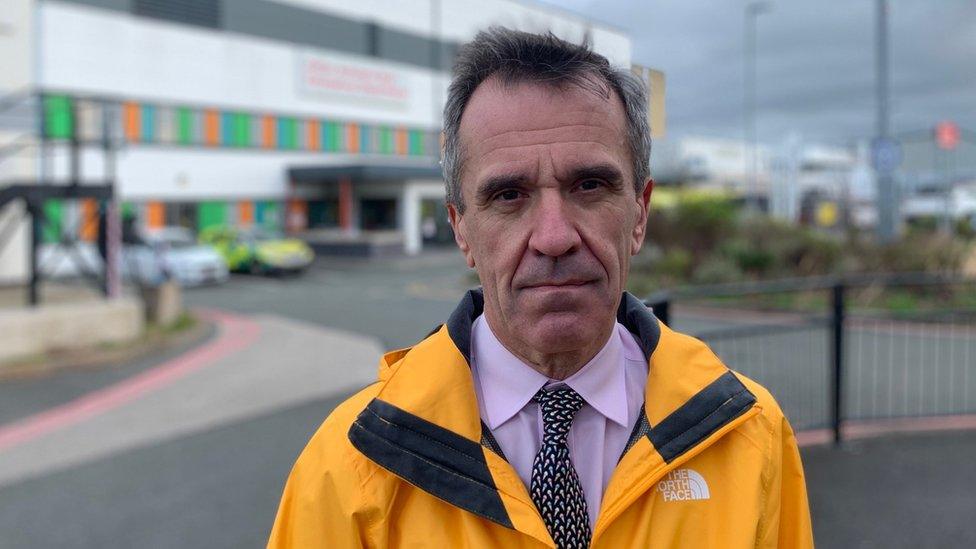Betsi Cadwaladr: Second English hospital to take vascular patients
- Published

Betsi Cadwaladr health board said the move was down to "operational challenges"
A second English hospital is to take some of north Wales' vascular patients due to the service's "fragility".
Some already go to Liverpool for surgery but now more could go to Stoke-on-Trent.
Betsi Cadwaladr health board's vascular services are at Ysbyty Glan Clwyd, under Welsh government targeted intervention following criticism.
The board said it faced "operational challenges" caused by staff sickness and recruitment problems.
Patients are already sometimes sent from Ysbyty Glan Clwyd, in Bodelwyddan, Denbighshire, to Liverpool.
In March, it was announced four more emergency procedures each week would take place at Liverpool University Hospitals NHS Trust.
That decision followed staff shortages at Ysbyty Glan Clwyd, as well as two "concerning incidents".
Health minister Eluned Morgan said patient safety concerns were raised last month by an oversight panel and measures were put in place for aortic patients.
She added: "There are immediate operational pressures due to consultant availability and nurse staffing in vascular services within the health board."

Eluned Morgan said it was "necessary to ensure a sustainable and safe provision" in vascular services
The "fragility of the service" had led the health board to consider contingency plans.
Ms Morgan said: "An agreement has been reached that, during August, some patients may be transferred to Royal Liverpool University Hospital or, as already happens for north Wales residents with major trauma injuries, Royal Stoke University Hospital."
The agreement with Royal Stoke University Hospital meant there would be extra capacity available if needed.
Ms Morgan said it was "necessary to ensure a sustainable and safe provision, in particular in relation to vascular services in north Wales".

Executive medical director Dr Nick Lyons said there were "operational challenges"
Betsi Cadwaladr's executive medical director, Dr Nick Lyons, said: "These contingency plans recognise the operational challenges we are experiencing due to staff sickness absence combined with recruitment difficulties."
There were, he said, concerns about "a small number" of vascular surgical cases.
"We expect these arrangements to remain in place until we are assured that the service is deliverable, robust and sustainable," he said.

CHALLENGING MISCONCEPTIONS: Life in Britain’s biggest special school
BORN DEAF, RAISED HEARING: What it means to live in two different worlds

- Published22 May 2022

- Published18 May 2022

- Published20 May 2021
